Andrzej Munk
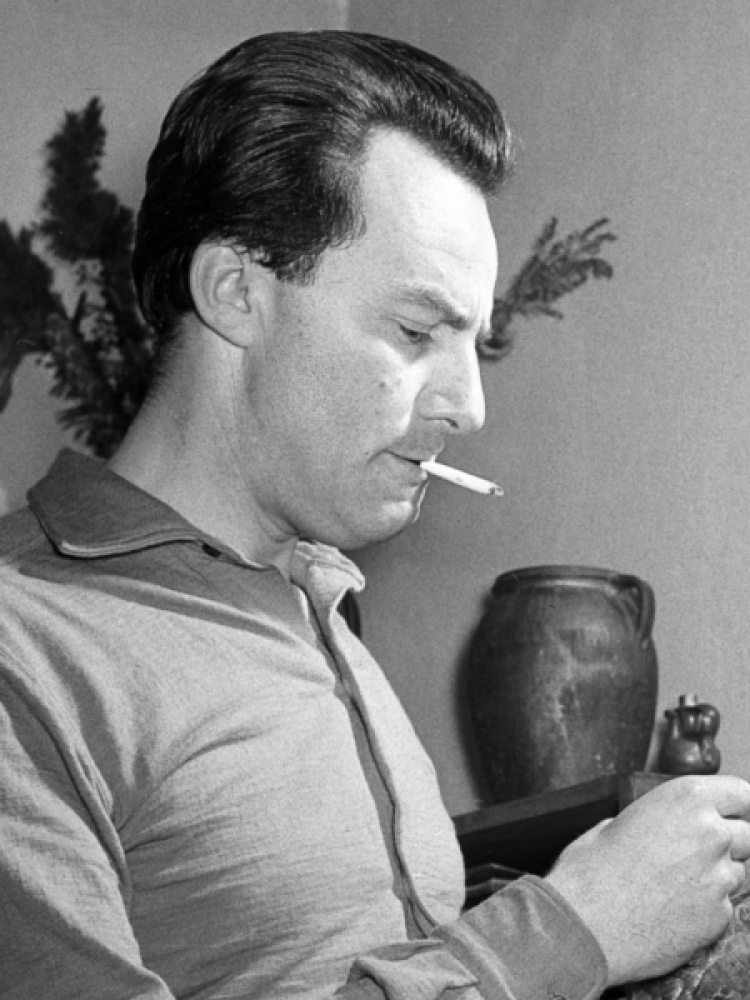
The figure and work of Andrzej Munk (1921-1961) is enshrouded in legend, the sources of which can be found in his untimely, tragic death, but most importantly in the belief that the creative output he left behind, and what he did not manage to do, hides a secret. This belief is based on experience coming from the encounters with the films he signed, and on the feeling that his sudden departure terminated an important movement in the history of Polish film – a movement which was separate, with no spiritually equivalent followers or successors. Going back to Andrzej Munk's four feature films (Man on the tracks, 1957, Eroica, 1958, Bad luck, 1959, Passenger, premiere 1963 – film finished by Witold Lesiewicz) confirms their intellectual openness. Time – the unrelenting auditor of value – did not upend or obliterate the importance of these films in the output of Polish culture. In his most important works Munk turned out to be an artist whose dialogue with the recipient lost nothing of its conceptual, social, and moral topicality. Original and entangled in tradition, modern for his generation, and universal in his historiosophic and ethical reflections, Andrzej Munk is an artist whose works are important because the discourse they hold – about the freedom of the individual, about responsibility and dignity – never loses its topicality.
Flmography:
Stracone złudzenia (student film, camera [DP]): 1948, production PWSF Łódź
Pielęgniarki (student film, camera [DP]): 1948, production PWSF
Art of The Young (student film, camera [DP]): 1949, production PWSF
It Began in Spain: 1950, production WFD in Warsaw
Science Closer to Life: 1951, production WFD
Destination Nowa Huta: 1951, production WFD
The Fairy Tale: 1952, production WFD
Peasant Diaries: 1952, production WFD
A Railwayman's Word: 1956, production WFD
Stars Must Be Alight: 1954, production WFD
One Sunday Morning: 1955, production WFD
The Men of the Blue Cross: 1955, production WFD
Man on the tracks: 1956, production WFF in Łódź
Eroica: 1957, production WFF i WFD
A Walk in the Old City of Warsaw: 1958, production WFD
Bad luck: 1959, production WFF
Polish Film Chronicle: 1959, no. 52 – A-B, production WFD
Passenger: 1961-63, production WFF
TV productions (lost):
Ksawery Pruszynski's Wieczory generalskie: 1959, production TVP
Terence Rattigan's Harlequinade: 1959, production TVP
Zofia Posmysz-Piasecka's Passenger: 1960, production TVP
Past events
- 29.09.2014, 17:00 - 19:00, Ośrodek Teatralny Kana, Polish Documentary Classics vol. 1 – Andrzej Munk
Films
- Kierunek Nowa Huta12'
Kierunek Nowa Huta / Destination Nowa Huta
Production: POL 1951A film which can be recognised as a model agitational picture of the Stalinist times of Polish cinema, and which Andrzej Wajda could quote as the work of director Burski in his Man of marble. At the same time, a testimony of the experiences of artists who debuted in the times of ideologically and “aesthetically” dominating socialist realism. It has all the features of that period's documentary cinema, where commentary was the instance organising the whole film, carrying the biggest part of the ideological propaganda message, only supplemented by the adequately edited picture. The real idea behind the film is the apotheosis of the construction of the factory and the Nowa Huta city, which is created in opposition to Kraków, stale in its bad tradition.
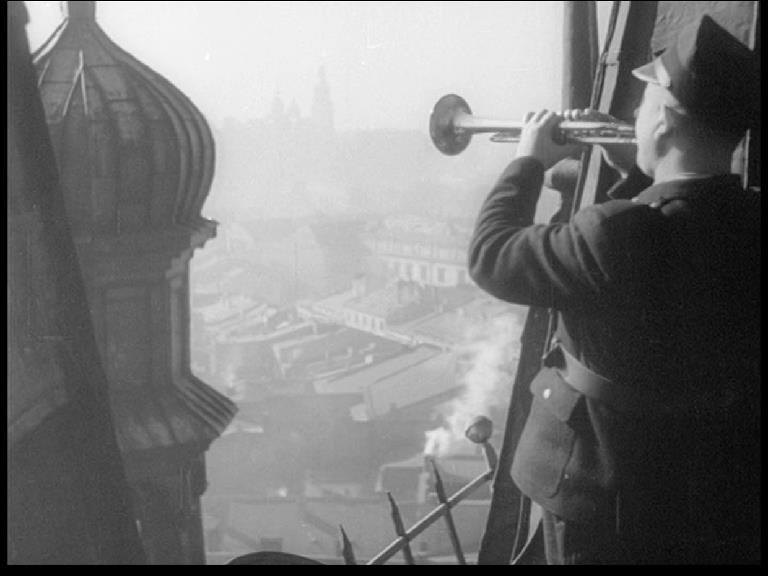
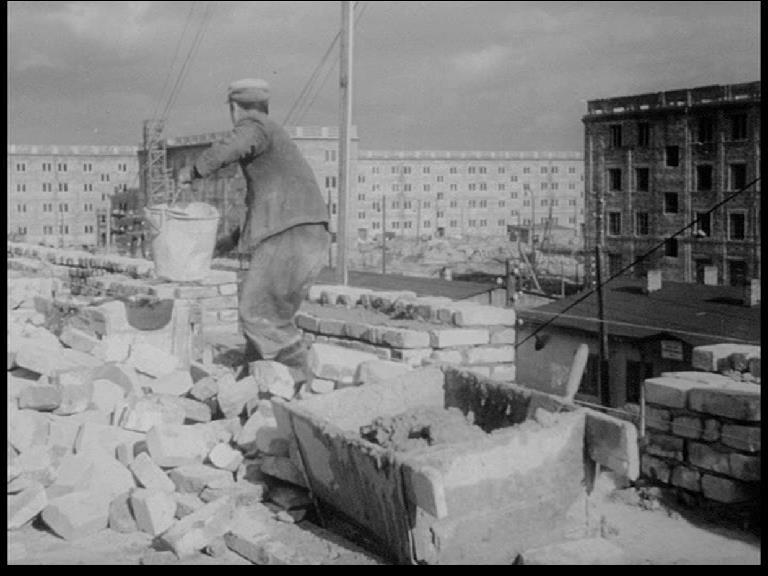
read more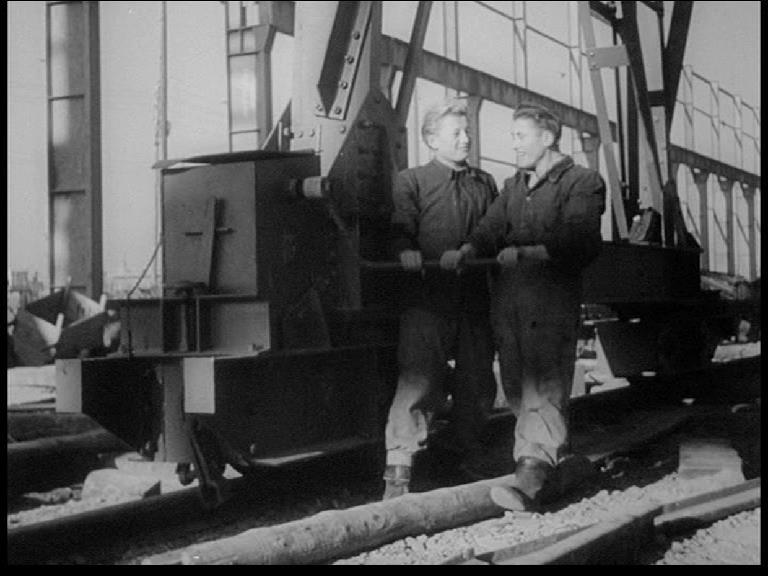
- Pamiętniki chłopów14'
Pamiętniki chłopów / Peasant Diaries
Production: POL 1952Andrzej Munk's first attempt to “humanise” the socialist-realist formula of documentary cinema. He does it by referring to authentic materials, the Peasant diaries published in 1935. The director finds its three authors and, by quoting excerpts from their diaries, confronts their old fate with the life in socialist Poland which makes the old dreams come true – dreams about one's own share of land, the chance to live with dignity, and the possibility to educate one's children. A part of this “humanising” is giving the viewer a chance for direct contact with those non-anonymous protagonists, whereas what dominated documentary film those days was the anonymous collectivity.
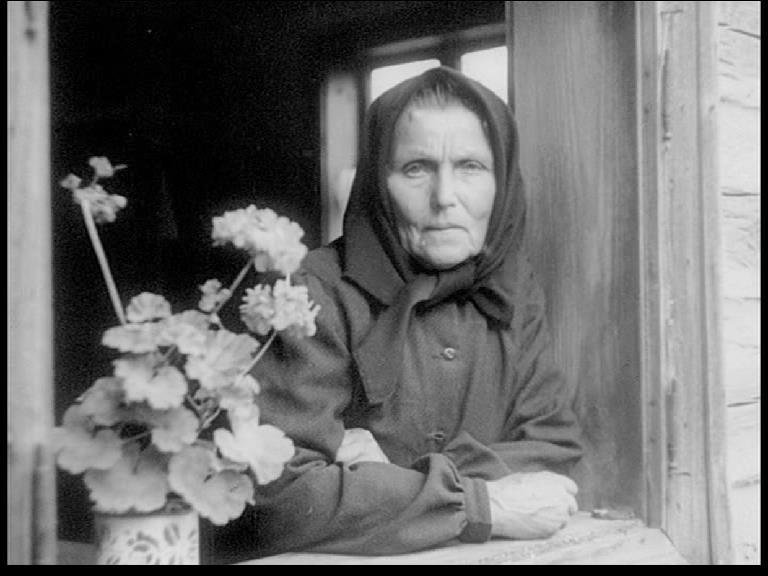
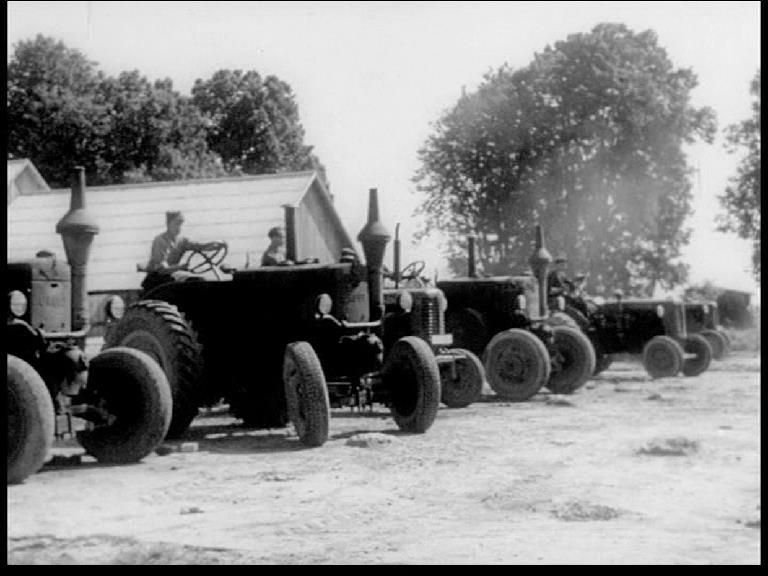
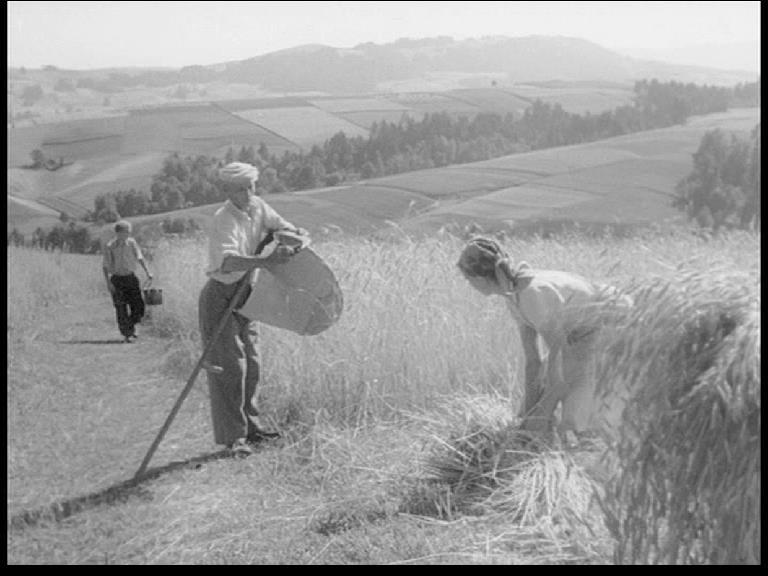
read more - Kolejarskie słowo21'
Kolejarskie słowo / A Railwayman's Word
Production: POL 1953Although this film seemingly fits the formula of socialist Poland's “production reportage,” it is actually a breakthrough in Andrzej Munk's documentary work. The quasi-feature film structure of the film is based on the task set before the crew of the coal train from Silesia to the steel mill in Szczecin, but also before other railwaymen assisting in the train's long route. The fight to carry out the plan, which is a typical topic for socialist realism cinema, was pictured by the filmmakers in a way which escapes the formula typical of those days. It is the people responsible for the task who are the most important here – their work ethic.
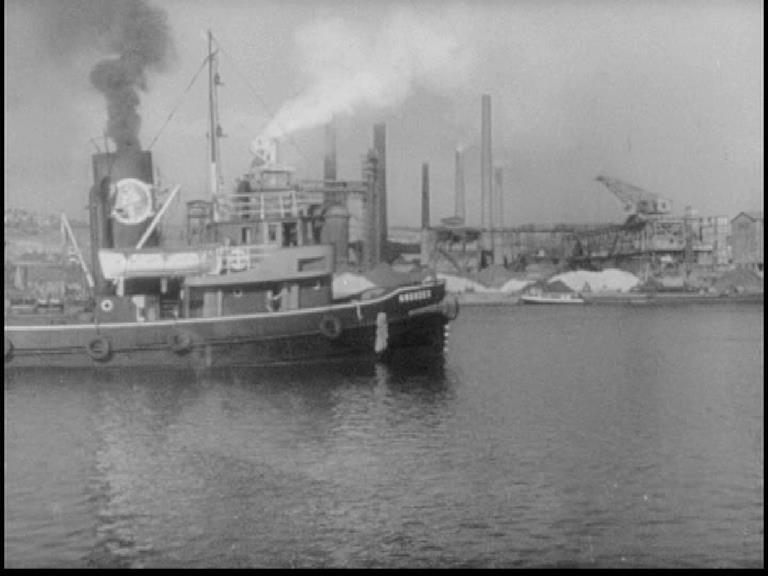
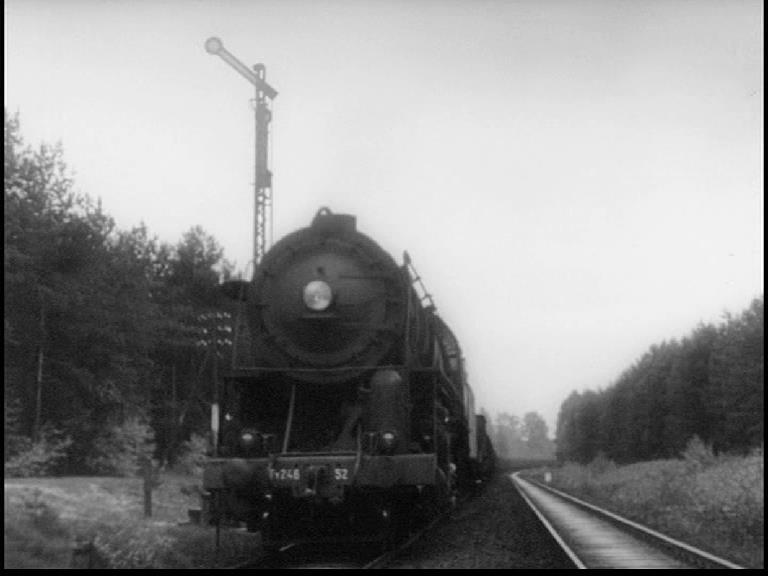
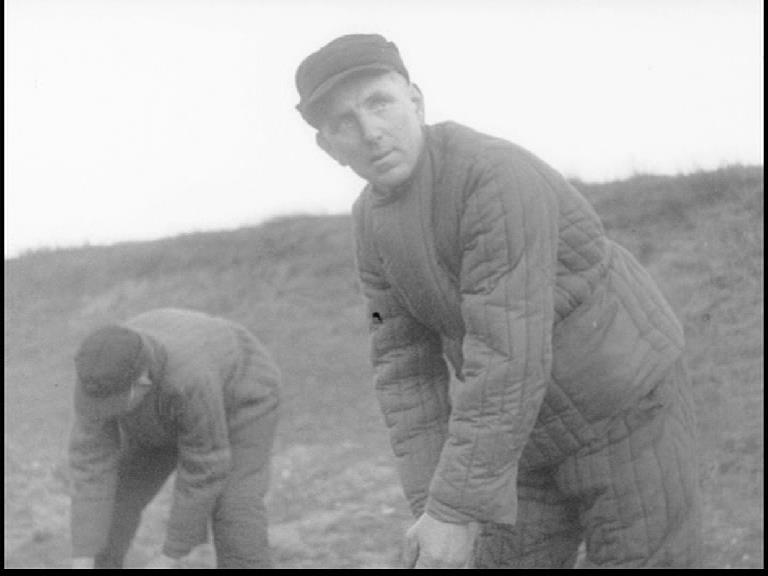
read more - Gwiazdy muszą płonąć104'
Gwiazdy muszą płonąć / Stars Must Be Alight
Production: POL 1954This is Andrzej Munk's first attempt at a feature film, though the tradition of interpretation situates it among the artist's documentary works. The reason for that is probably the graphic poetics of Stars, which belongs to the documentary experience, using the material reality as its main fabric in the creation of the represented world. In Stars this reality is the world of the mine – mineshafts, drifts, the coal itself, gas, water, mining tools. The pictures and elements of this world, perfectly organised in the editing process, not only create authentic scenery for the stories told in the film, but also give the unusual flavour, typical only for the miners' experience.
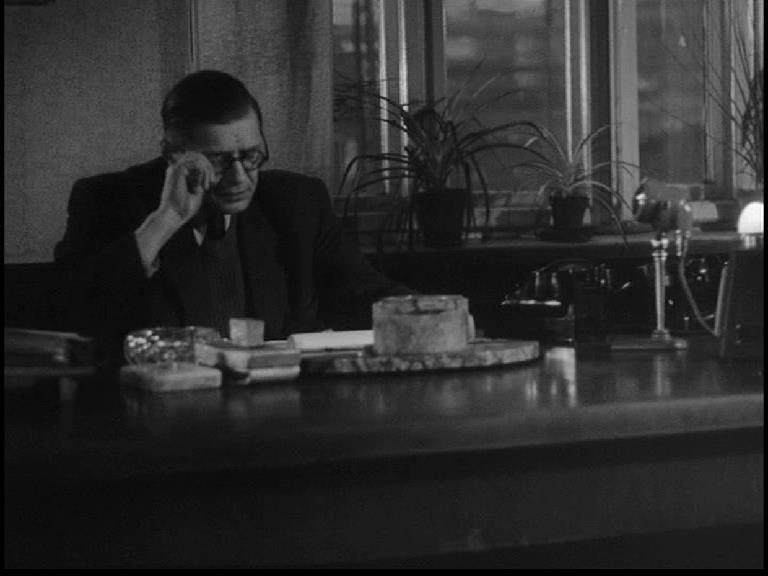
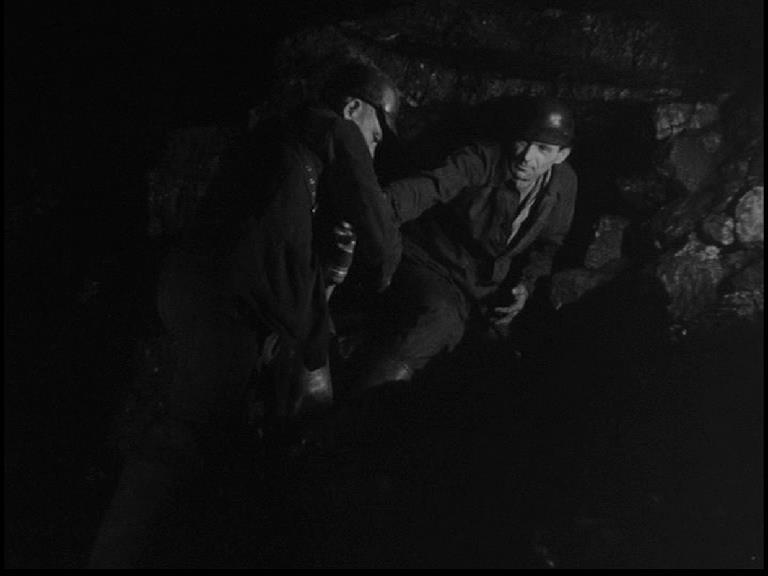
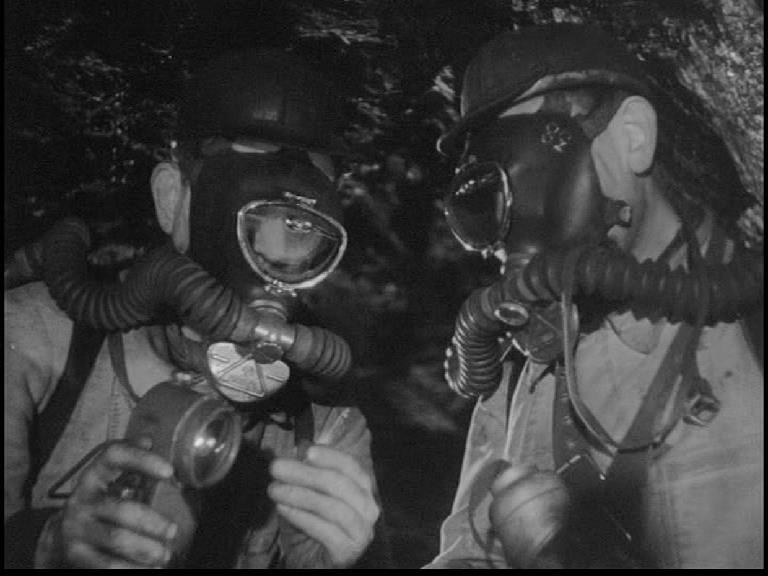
read more - Niedzielny poranek18'
Niedzielny poranek / One Sunday Morning
Production: POL 1955This film, made on the basis of Munk's own script, is a humorous film essay, with a subtitle appropriate to its character: Scherzo. It tells a story of a summer Sunday morning in Warsaw, of the city dwellers seen mostly through the bus window. The film merges a humorous, distanced commentary read by Kazimierz Rudzki, and a short anegdote about “him” and about “her” - the bus driver and the bus ticket inspector. Munk used this trivial anecdote to observe and stage typical, everyday scenes from the life of the inhabitants of Warsaw. They do not lack the qualities of realistic observation and humour.

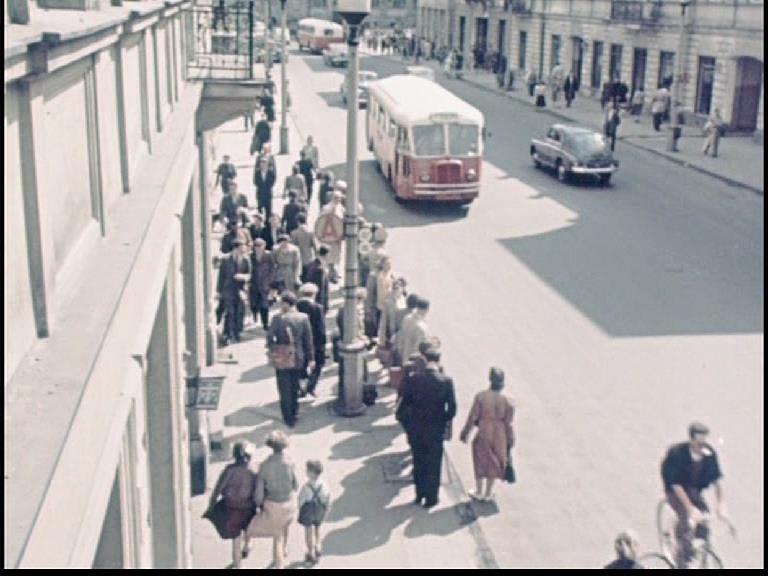
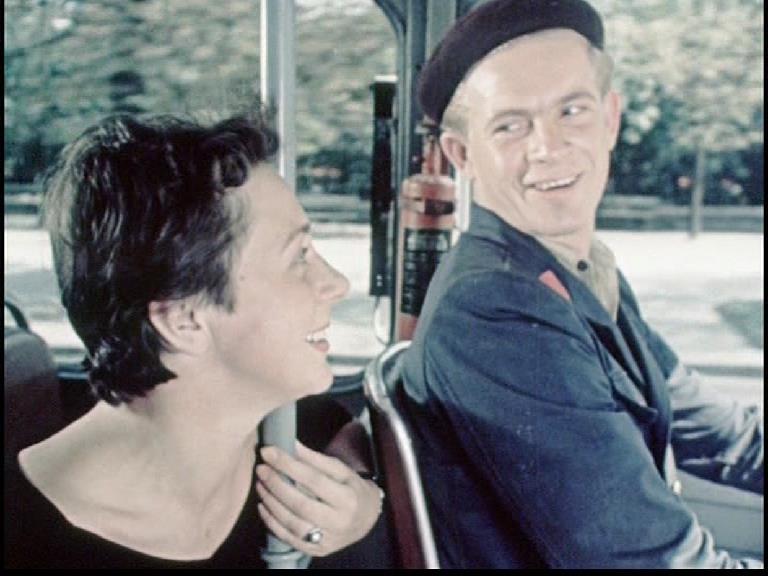
read more - Błękitny krzyż55'
Błękitny krzyż / The Men of the Blue Cross
Production: POL 1955The middle-length The Men of the Blue Cross is another attempt by Andrzej Munk (after Stars Must Be Alight) at finding his place in the world of feature film. This time Munk reconstructs the events that took place in the last days of war, and have been written down in the Chronicle of the Mountain Volunteer Search and Rescue organisation (GOPR) in Zakopane. During this operation, Polish GOPR rescuers went to save the lives of wounded Soviet and Slovak partisans hiding in a shelter in the Slovakian part of the Tatra Mountains which was still controlled by the Germans. Munk's film tells the story of this expedition, with the intention to portray the authentic heroes of those long past events.
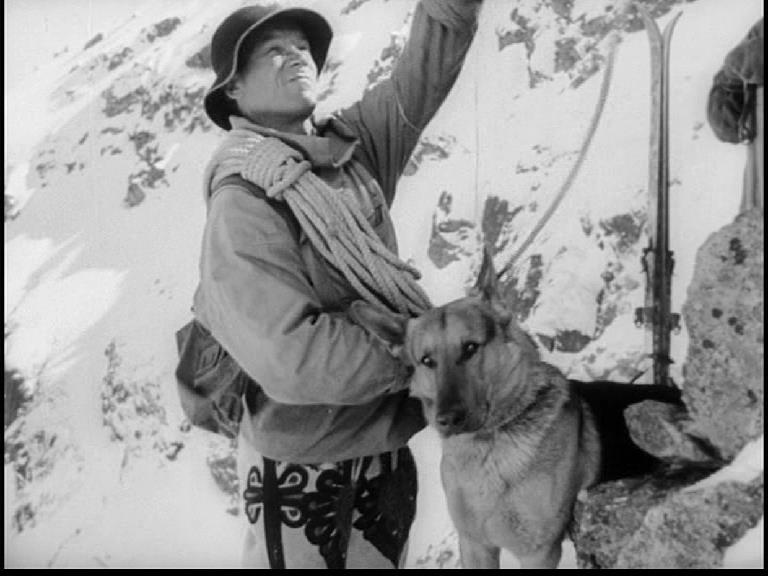
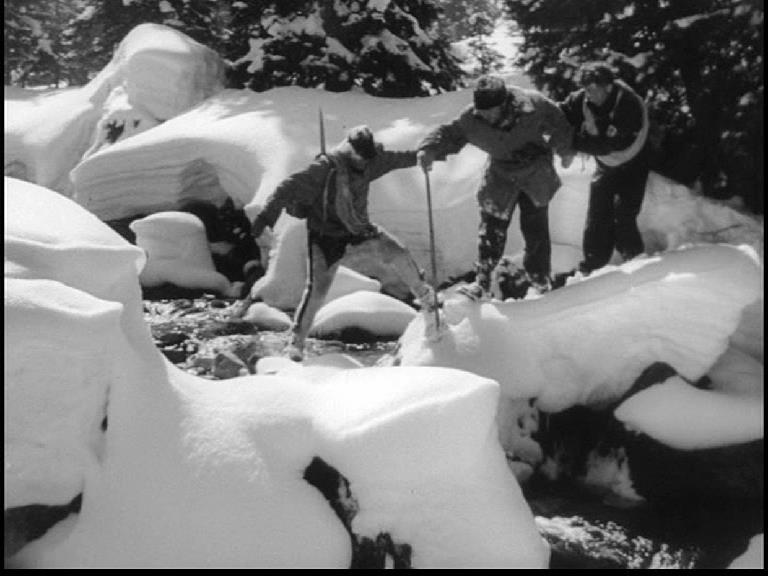
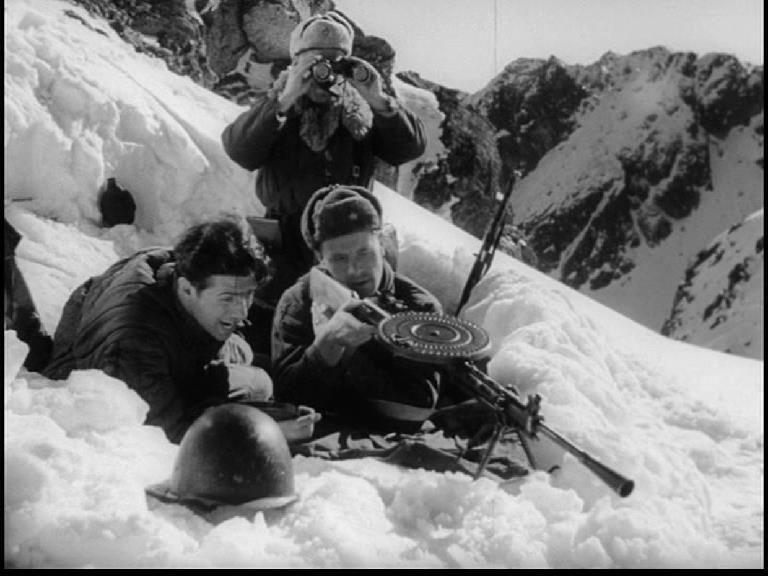
read more - Spacerek staromiejski18'
Spacerek staromiejski / A Walk in the Old City of Warsaw
Production: POL 1958, COL, 18'A film made as a type of intermezzo between the premieres of Eroica and Bad Luck. It was based on the idea by composer Andrzej Markowski, and was brought to life exquisitely. Its little protagonist, a music school student, wanders about the Old City of Warsaw and discovers a world which is not available for everyone. It is a world of amazing and beautiful sounds. They are the most important for the little girl, she finds music in them – in the noise of kids, sounds of the street, chuffing of the tractor, tuning of the organs, shuffling of the broom, and in the jets flying by.
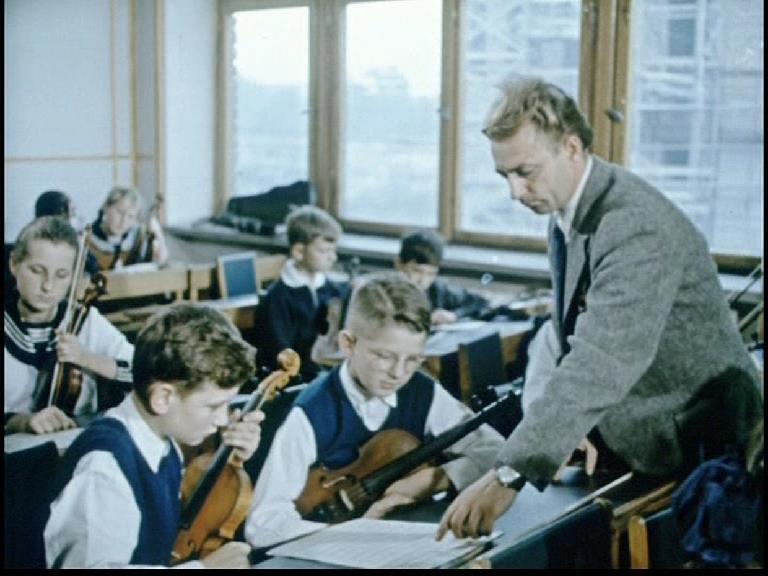
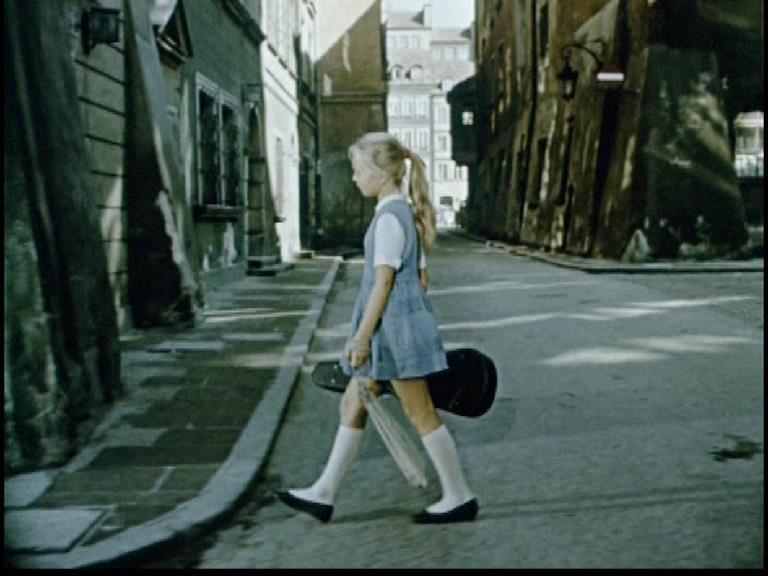
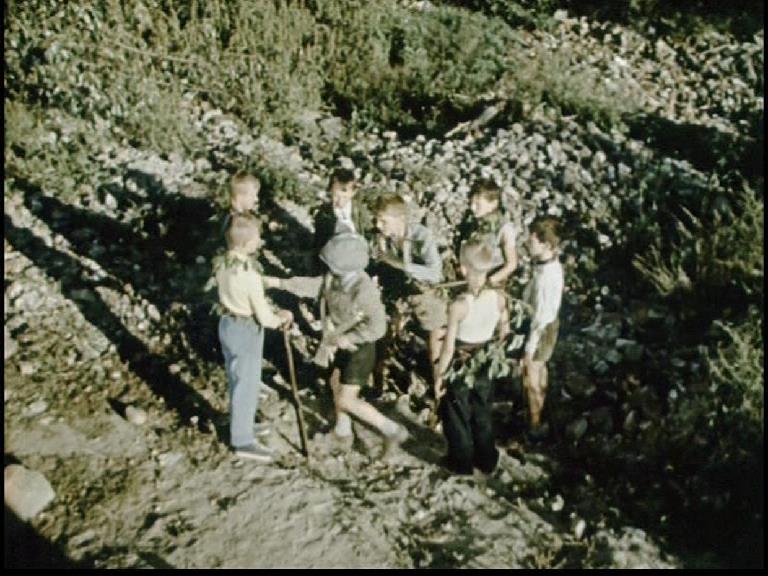
read more - Polska Kronika Filmowa (numer jubileuszowy – 1959 rok, nr 52 – A-B)20'
Polska Kronika Filmowa (numer jubileuszowy – 1959 rok, nr 52 – A-B)
Polish Film Chronicle (anniversary edition – 1959, nr 52 – A-B)
Production: POL 1959
The fact that Andrzej Munk made the anniversary PKF chronicle in 1959 was a surprising move in the director's artistic work, as he was already a great artistic authority who dealt with great historiosophic, political, and moral topics in his feature films. As one can tell, he also liked to distance himself from the seemingly marginal matters, and the anniversary edition of Chronicle best proves that, being a pastiche of the genre as such, and of its Polish version. Chronicle's eleven topics are united by Wiesław Gołas, the actor who takes on different roles, including one of a shipyard worker, scientist, preschooler, orator, cook, sportsman – protagonists of events noted by the chronicler, such as New achievements, New school, New sport, New plaque (with the information: No famous Pole lived here), etc.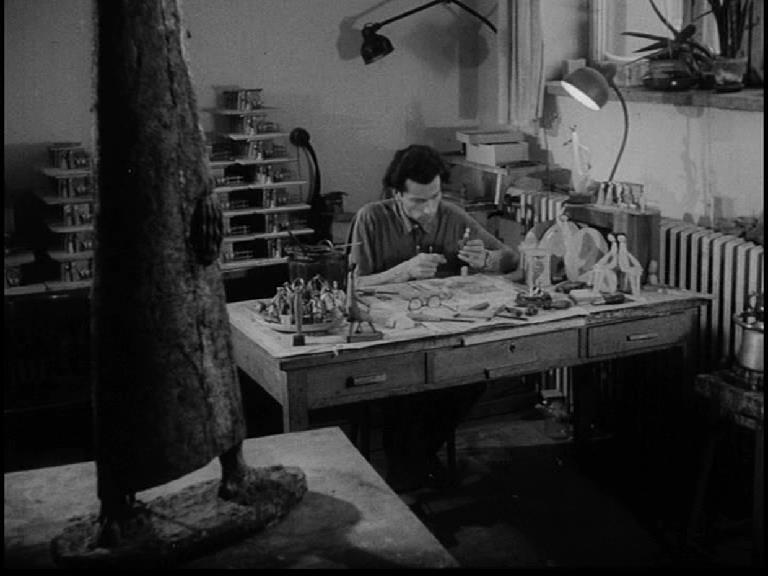
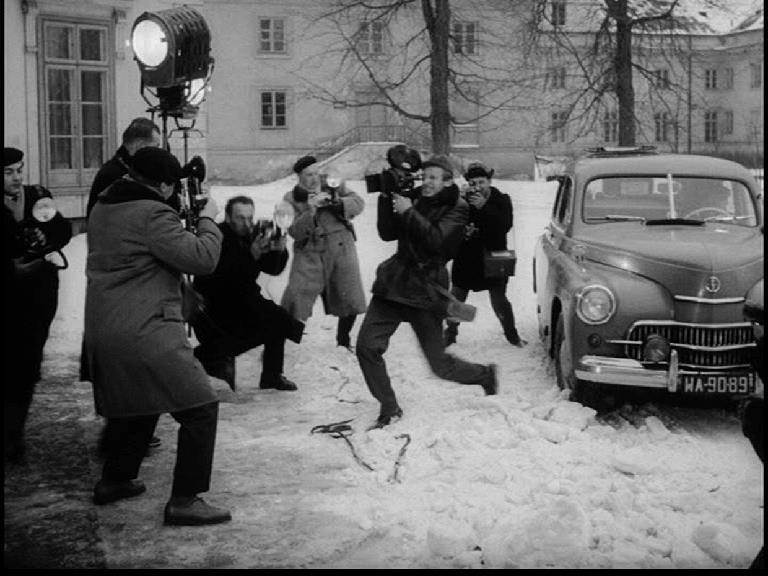
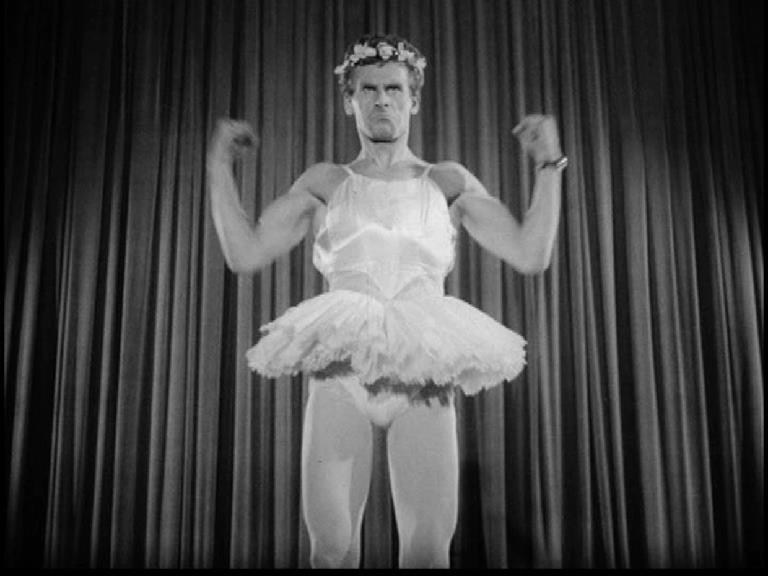
read more


